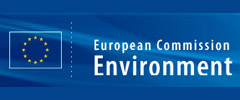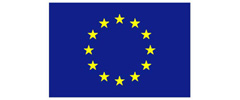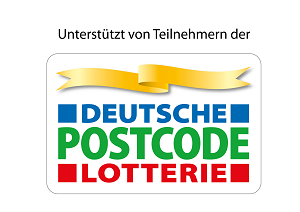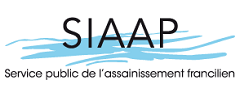The Road to Rio - Interview with WECF director Sascha Gabizon
Interview with WECF director Sascha Gabizon, co-chair of the Women's Major Group for the UN conference on Sustainable Development (UNSCD) 2012 process
26.03.2012 | The Road To Rio - NGLS newsletter for Civil Society
Women in Europe for a Common Future (WECF), along with Voices of African Mothers (VAM), are Co-chairs for the Women’s Major Group (WMG) for the UN Conference on Sustainable Development (UNCSD) 2012 process. They are supported by a steering committee that includes international women’s networks working on sustainable development issues.
In the lead up to Rio+20, the Women’s Major Group has been actively mobilized on a range of issues concerning gender and sustainable development. Below, NGLS interviews the co-chairs Sascha Gabizon, Executive Director of Women in Europe for a Common Future as well as Nanu-Fosu Randall, Sabina Anoyke Mensah, and Mekdes Gebre Ibrahim of Voices of African Mothers.
NGLS: Your organization aims to empower women and make sustainable development policies more gender responsive. Could you outline some concrete activities which you are implementing in this regard? What are some of your main challenges?
WECF: Women in Europe for a Common Future (WECF) was created as a result of the Rio 1992 Earth Summit to give women a voice in policy making on sustainable development – as women had become one of the nine “Major Groups” in Agenda 21 – and to practically implement sustainable development at the local and national levels. The focus of the local implementation projects in the first ten years was in particular in the former Soviet Union countries, which opened up after the fall of the Berlin Wall. Now projects are implemented around the world.
WECF implements local sustainable development in four areas: safe renewable energy for all, safe water and sanitation for all, safe food and rural development for all, and safe chemicals and health for all. With over 100 local partners in 40 countries, we have built environmentally-friendly water systems, eco-toilets, waste-water ponds, solar heaters, biogas plants, solar fruit driers, and non-toxic building materials and pest-protection products. These local projects have provided access to sustainable and low-cost services for over 35,000 women, men and children. Amongst others, at least 50 schools are involved in our projects. The main challenges are lack of priority for women’s participation, lack of access to affordable finance, and wrong political incentives, including from international finance institutions (IFIs), among others. We make sure that grassroots women participate in national and UN policy processes so that they can present their lessons learned on difficulties and barriers, as well as their successes, to policy makers.
In the lead up to Rio+20, the Women’s Major Group is well organized. The two organizing partners, WECF and VAM, are supported by a steering committee which brings together the 150 main women’s, environment, and development organizations from over 80 countries. In particular, support is provided by the core group of organizations including Development Alternatives with Women for a New Era (DAWN), ENERGIA Gender and Sustainable Energy Network; and Women’s Environment & Development Organization (WEDO). There is close cooperation with Brazilian women’s organizations which have all joined together to organize women’s activities at the “People’s Summit” which will be taking place in parallel to the UNCSD.
Local focal points are organizing activities at regional and national level, for example in the coming weeks there will be women Rio+20-related conferences in Tunis, Manila, Dakar, Alger, Brazzaville, New York and in N’Djamena.
The WMG is also organizing two side events at the Third Intersessional in New York from 26-27 March, and made a presentation at the meeting of the Network of Women Environment Ministers on 22 February, at UNEP Headquarters in Nairobi.
The current funding situation is very limited, and so far travel-funding has only been secured for some 20 women to take part in the Rio+20 Conference, and there is no funding as yet for the women’s activities at the “People’s Summit.” This is an area where further support would be much appreciated.
NGLS: The Women’s Major Group Summary – which served as input to the Rio+20 “zero draft” of the outcome document – said that “it is time to move from the current economic system to one that embraces the ‘Care Economy.’” Could you explain your vision for a Care Economy and what it should include to enhance sustainable development? How does a “Care Economy” relate to a “Green Economy?”
WECF: Both nature’s and women’s unpaid contributions to our economies are not reflected in the main indicators used for political decision making – gross domestic product (GDP). [See, for example, “Economic Policies Must Consider Unpaid Work of Women,” ECLAC Notes No. 70, December 2011.] Some estimates indicate that women’s unpaid labour might represent as much as 50% of GDP. Women, especially in developing countries, are the majority of the poor. Women-headed households are at the bottom of income scales everywhere in the world. Poor women often have to spend many hours per day just to provide basic services for survival: water, food and fuel. This often leaves them little time for “paid” employment. In addition, in many countries women are not allowed to own property, have a bank-account or a passport. Women own 1% of assets worldwide. In many countries, laws and tradition still forbid women from owning land and resources, and thus limit their access to finance. At the same time, numerous studies by the World Bank and others prove that money invested in women is the best investment in the development of a community.
A Care Economy would value the contribution of women and nature to the well-being of our societies. This does not automatically mean that we need to “monetarize” nature – but at least in our constitutions we should acknowledge this value, and protect our natural resources from short term exploitation, as well as protecting women from exploitation and poverty. In practice, that means that we need a “Global Social Protection Floor” – basic income for women, and access to basic services, food, water, energy, housing and employment. In many countries, including developing countries, a social protection floor already exists. Brazil has made great advances in poverty reduction with its “Bolsa Familia,” where women in the households obtained a social protection payment – moving some 50 million people out of extreme poverty. India has agreed on a “human rights based” approach in development policy, giving women and men in rural areas the “right to employment” – at least 100 days of guaranteed employment, which allows them to fulfill their basic needs. The proposal for a Global Social Protection Floor is one of the possible agreements from Rio+20 which is gaining momentum.
NGLS: The Women’s Major Group reacted to the “zero draft” during the initial Rio+20 negotiations in January. They urged Member States to agree on a Social Protection Floor and the global implementation of Rio Principle 10 (on access to information, participation and transparency). Are there other key issues that should be included in the Rio+20 outcome document to advance gender equality and women’s empowerment?
WECF: The Women’s Major Group is focusing on two issues: priority issues from a women’s perspective as well as a gender equality instrument.
Among the key priority issues from a women’s perspective is the issue of “technology.” The zero draft calls in many parts for “technology transfer” and developing “green technologies.” But who decides what “green technology” is? Is it geo-engineering, which is already happing in large-scale experiments around the Pacific Ocean? It is often suggested that women are enemies of technology. Many polls show that women want responsible technologies and worldwide women have been the majority to say no to nuclear energy and genetically modified organisms. And with justification! Unfortunately, little has been learned from previous health disasters – many governments still allow lead in petrol, which has led to generations of children with damaged health. Many countries continue to sell and use asbestos, a recognized killer, which is completely unnecessary and very easy to substitute. Research shows that women and children are at greater risk from nuclear radiation. A recent French study [The International Journal on Cancer, January 2012] suggests that children living near nuclear power plants have higher levels of leukemia (blood cancer) – but no legal measures are being taken to protect them. There are lots of indications from scientific research that children’s health is being irreversibly impacted by harmful chemicals (Bisphenol-A, Brominated Flame Retardants, Phthalates) and new technologies such as nano-technology. Our children are all involuntarily part of a global experiment by industry – and they are not sufficiently protected by law. That is why the WMG calls for the creation at Rio+20 of an independent “technology assessment and monitoring organization,” and an immediate moratorium on geo-engineering.
Another key outcome which the WMG calls for is that any new institutional framework decided on in Rio+20 should aim to achieve gender equality in its governing bodies, staffing and implementation mechanisms. Furthermore, the Women’s Major Group as a vehicle for participation of women should be kept and extended to other international organizations. Other key priorities include bringing gender and women’s empowerment into the proposed “Sustainable Development Goals” and Green Economy Roadmaps – as well as proposals for women’s access to food sovereignty, renewable energy, water and sanitation, amongst others.
NGLS: Considering the international community’s experience with the Millennium Development Goals, do you think that establishing Sustainable Development Goals (SDGs) is a good way to advance the UN’s development agenda?
WECF: The WMG is very supportive of the Sustainable Development Goal proposals, especially because they will be universal goals, not just goals for developing countries, but for all countries worldwide. Also, the goals are meant to ensure that everybody, and not only 50% of the population (as is currently the case with the MDGs), should benefit from the goals. Sustainable Development Goals are therefore based on a human rights approach.
It is as yet unsure how women’s empowerment and gender equality will fit into the SDGs. It might be an option to add a gender indicator as one of several indicators for each of the SDGs. For example, such an indicator could be to measure how far women have equal access to renewable energy. Another option is to have one specific gender equality and women’s empowerment goal, as part of the SDGs, building on the experience with the MDG3 and MDG5. Such goals could include indicators that women should have access to land rights, basic services, and finance.
NGLS: What activities have you planned for Rio+20?
WECF: We are planning a number of side-events and briefings for negotiators in the lead-up to Rio+20. Two side events will be held during the Rio+20 Intersessional in New York, one on “gender and the SDGs,” and one on “gender and a critical view on the green economy.” At the national and regional level, a number of “Women Rio+20” conferences are being organized, including in Manila, New York (during the Commission on the Status of Women), Tunis, Algiers, Senegal, Chad, and Congo Brazzaville. A planning meeting of the Brazilian women’s organizations with international partners took place during the “Thematic Social Forum” in Porto Alegre, Brazil, preparing the focus of the “women’s planet” at the “People’s Summit,” which will take place in parallel to the UNCSD in Rio de Janeiro this June. Numerous events, exhibitions and learning center activities are being prepared for the 3rd PrepCom, the Sandwich Days and the Rio+20 Conference itself. Follow-up events after the Rio+20 Conference are also being prepared, amongst others in Berlin, Congo Brazzaville, Senegal, and France.
Click here to access the Women’s Major Group contribution to the compilation document.
The original article can be found here
Related News
Meet the Winners of the Gender Just Climate Solutions Award at COP24
On the 70th anniversary of the Universal Declaration of Human Rights, we awarded Gender Just Climate Solutions Winners at the climate negotiations in Katowice, Poland
11.12.2018
Invitation: Gender Just Climate Solutions Award 2018
10 December, COP24 Katowice
04.12.2018
Getting to the Future We Want
4-7 November, Brussels: European Environmental Bureau’s (EEB) Annual Conference
12.11.2018
GoodFood4All
WECF and partners all over Europe start GoodFood4All Campaign
06.11.2018
#Ruralwomen: join our Women2030 campaign!
15.10.2018







































